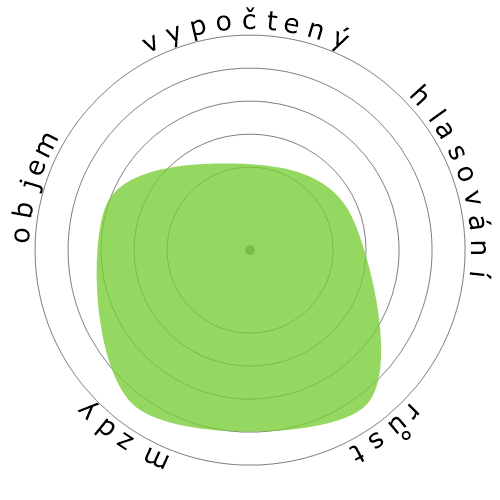Analytici informační bezpečnosti
Kam byste chtěli jít dál?
Nebo prozkoumejte tuto profesi podrobněji...


Co tato sněhová vločka ukazuje?
Co je to?
Práce hodnotíme podle čtyř faktorů. Jsou to:
- Pravděpodobnost automatizace
- Růst pracovních míst
- Mzdy
- Počet dostupných pozic
To jsou některé klíčové věci, o kterých byste měli přemýšlet při hledání práce.
Lidé také zobrazili
Vypočítané riziko automatizace
Střední riziko (41-60%): Profese se středním rizikem automatizace obvykle zahrnují rutinní úkoly, ale stále vyžadují určité lidské úsudky a interakci.
Další informace o tom, co tento skóre je a jak se vypočítává, jsou k dispozici zde.
Anketa uživatelů
Naši návštěvníci hlasovali, že si nejsou jisti, zda bude toto povolání automatizováno. Toto hodnocení je dále podpořeno vypočítanou úrovní rizika automatizace, která odhaduje 58% šanci na automatizaci.
Jaký si myslíte, že je riziko automatizace?
Jaká je pravděpodobnost, že Analytici informační bezpečnosti bude během příštích 20 let nahrazen roboty nebo umělou inteligencí?
Nálada
Následující graf je zobrazen tam, kde je dostatek hlasů k vytvoření smysluplných dat. Zobrazuje výsledky uživatelských anket v průběhu času a poskytuje jasný přehled o trendech nálad.
Nálada v průběhu času (ročně)
Růst
Počet pracovních míst pro 'Information Security Analysts' se očekává, že se zvýší o 32,7% do roku 2033
Celkové zaměstnanost a odhadované pracovní nabídky
Aktualizované projekce jsou splatné 09-2025.
Mzdy
V 2023 byla mediánová roční mzda pro 'Information Security Analysts' 120 360 $, což je 58 $ za hodinu.
'Information Security Analysts' byli placeni o 150,4% více než je národní mediánový plat, který činil 48 060 $
Mzdy v průběhu času
Objem
K 2023 bylo v Spojených státech zaměstnáno 175 350 lidí na pozici 'Information Security Analysts'.
Tohle představuje kolem 0,12% zaměstnané pracovní síly po celé zemi.
Jinými slovy, přibližně 1 z 866 lidí je zaměstnán jako 'Information Security Analysts'.
Popis práce
Plánujte, implementujte, vylepšujte nebo sledujte bezpečnostní opatření pro ochranu počítačových sítí a informací. Posuďte zranitelnosti systému z hlediska bezpečnostních rizik a navrhněte a implementujte strategie pro zmírnění rizik. Může zajistit, že jsou na místě příslušné bezpečnostní kontroly, které ochrání digitální soubory a zásadní elektronickou infrastrukturu. Může reagovat na porušení počítačové bezpečnosti a viry.
SOC Code: 15-1212.00
Komentáře (18)
It'll be a race between red and blue team businesses to implement increasingly better models. Social engineering sure, but meh honestly. Will you be able to find incredibly difficult scraps or oversights the model missed? Will it be worth the risk and investment of the pentester? Overall bleak outlook.
Odpovědět na komentář